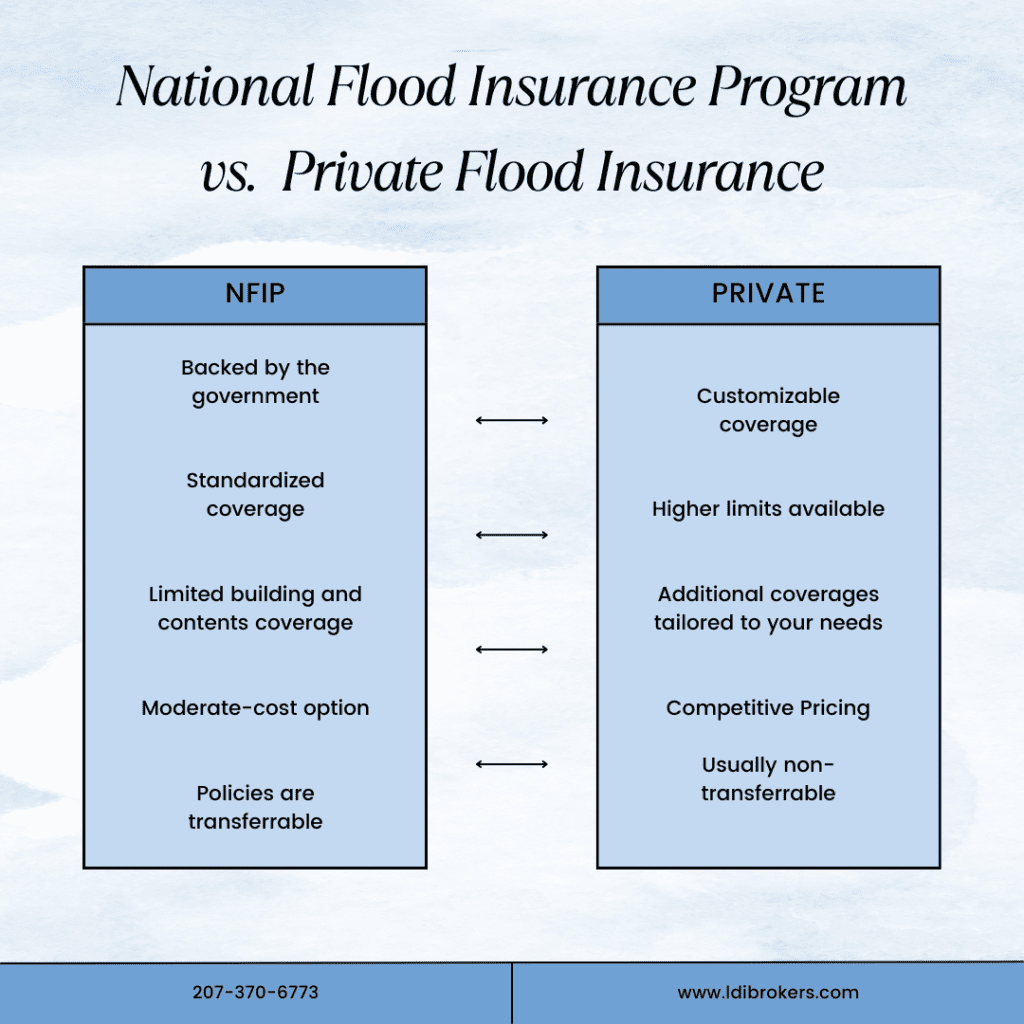

National Flood Insurance Program: Government-Backed Protection
The NFIP, established by the federal government, offers flood insurance to property owners in participating communities across the United States. Here’s what you need to know about NFIP policies:
- Backed by the government: NFIP policies are administered by the Federal Emergency Management Agency (FEMA), providing a level of reliability and security.
- Standardized coverage: NFIP policies offer standardized coverage limits for both building and contents, simplifying the process of understanding what is covered.
- Limited coverage: While NFIP policies provide essential protection, they may have limited coverage compared to private flood policies, especially for high-value properties or unique risks.
- Moderate-cost option: NFIP premiums are often competitively priced, making them an attractive option for many property owners.
Transferrable: NFIP policies are transferrable, meaning if you sell your property, the flood insurance coverage can be transferred to the new owner, providing flexibility and continuity.
Private Flood Policies: Tailored Protection
Private flood insurance policies are offered by private insurers and can provide more customized coverage options. Here’s what sets them apart:
- Customizable coverage: Private flood policies offer more flexibility in coverage options, allowing property owners to tailor their insurance to specific needs and risks.
- Higher limits available: Private insurers may offer higher coverage limits than the NFIP, making them suitable for high-value properties or properties with unique risks.
- Additional coverages: Private policies may include additional coverages not available through the NFIP, such as business interruption coverage or coverage for temporary relocation expenses.
- Competitive pricing: Despite offering enhanced coverage options, private flood insurance policies may still be competitively priced, depending on factors such as location and property type.
- Typically non-transferrable: An important consideration is that unlike NFIP policies, private flood policies are typically non-transferrable to a new owner. This means that if you sell your property, the flood insurance policy will not automatically transfer to the new owner, potentially affecting the property’s marketability.
Choosing the Right Policy
When deciding between NFIP and private flood insurance, it’s essential to consider your unique business requirements. Here are some factors to keep in mind:
- Evaluate the risks: Assess the flood risk for your property, considering factors such as location, flood zone designation, and proximity to bodies of water.
- Assess your property: Consider the value of your property and the potential cost of flood damage. Determine whether the coverage limits offered by NFIP policies are sufficient or if you require higher limits available through private flood insurance.
- Consider your needs: Think about any additional coverages you may need, such as business interruption coverage or coverage for valuable equipment or inventory.
- Consult with an expert: Work with an insurance agent or broker who specializes in flood insurance to help you understand your options and make an informed decision.
Ultimately, the goal of flood insurance is to provide you with the peace of mind that comes from knowing your property is protected against flood damage. Whether you choose NFIP or a private flood policy, taking the time to evaluate your options and select the right coverage for your needs can help safeguard your investment and ensure your business’s continuity in the face of unexpected events. If you have any questions or need assistance navigating your flood insurance options, don’t hesitate to reach out – we’re here to help!
